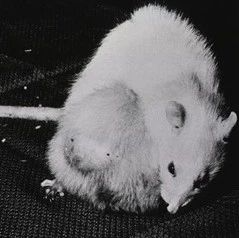
东京大学教授畠山昌则率领的研究小组在29日的美国《国家科学院学报》网络版上报告悦,幽门螺杆菌具有让胃细胞倒退为类似干细胞那样的未分化细胞的能力。
幽门螺杆菌是一种单级、多鞭毛、螺旋形弯曲的细菌,感染这种细菌与胃癌发生之间的密切关系已为大量研究所证实。
研究人员在实验中发现,幽门螺杆菌制造的蛋白质侵入胃细胞之后,基因CDX1就会发挥作用,激活另外两种基因,于是胃细胞就会逆向转变为一种类似干细胞的、能够发育为消化道各种细胞的未分化细胞。
此前的研究显示,因感染幽门螺杆菌造成的慢性胃炎如果长期持续,胃粘膜上就会出现肠细胞。研究人员认为正是倒退为干细胞状态的细胞分裂产生了肠细胞。
畠山昌则指出:“干细胞能够分化成各种细胞,同时也具有容易癌变的性质,因此幽门螺杆菌在胃部大量出现,可能与一些胃癌的发病相关。”

 CDX1 confers intestinal phenotype on gastric epithelial cells via induction of stemness-associated reprogramming factors SALL4 and KLF5
CDX1 confers intestinal phenotype on gastric epithelial cells via induction of stemness-associated reprogramming factors SALL4 and KLF5
Yumiko Fujii, Kyoko Yoshihashi, Hidekazu Suzuki, Shuichi Tsutsumi, Hiroyuki Mutoh, Shin Maeda, Yukinori Yamagata, Yasuyuki Seto, Hiroyuki Aburatani, and Masanori Hatakeyama
Intestinal metaplasia of the stomach, a mucosal change characterized by the conversion of gastric epithelium into an intestinal phenotype, is a precancerous lesion from which intestinal-type gastric adenocarcinoma arises. Chronic infection with Helicobacter pylori is a major cause of gastric intestinal metaplasia, and aberrant induction by H. pylori of the intestine-specific caudal-related homeobox (CDX) transcription factors, CDX1 and CDX2, plays a key role in this metaplastic change. As such, a critical issue arises as to how these factors govern the cell- and tissue-type switching. In this study, we explored genes directly activated by CDX1 in gastric epithelial cells and identified stemness-associated reprogramming factors SALL4 and KLF5. Indeed, SALL4 and KLF5 were aberrantly expressed in the CDX1+ intestinal metaplasia of the stomach in both humans and mice. In cultured gastric epithelial cells, sustained expression of CDX1 gave rise to the induction of early intestinal-stemness markers, followed by the expression of intestinal-differentiation markers. Furthermore, the induction of these markers was suppressed by inhibiting either SALL4 or KLF5 expression, indicating that CDX1-induced SALL4 and KLF5 converted gastric epithelial cells into tissue stem-like progenitor cells, which then transdifferentiated into intestinal epithelial cells. Our study places the stemness-related reprogramming factors as critical components of CDX1-directed transcriptional circuitries that promote intestinal metaplasia. Requirement of a transit through dedifferentiated stem/progenitor-like cells, which share properties in common with cancer stem cells, may underlie predisposition of intestinal metaplasia to neoplastic transformation.






